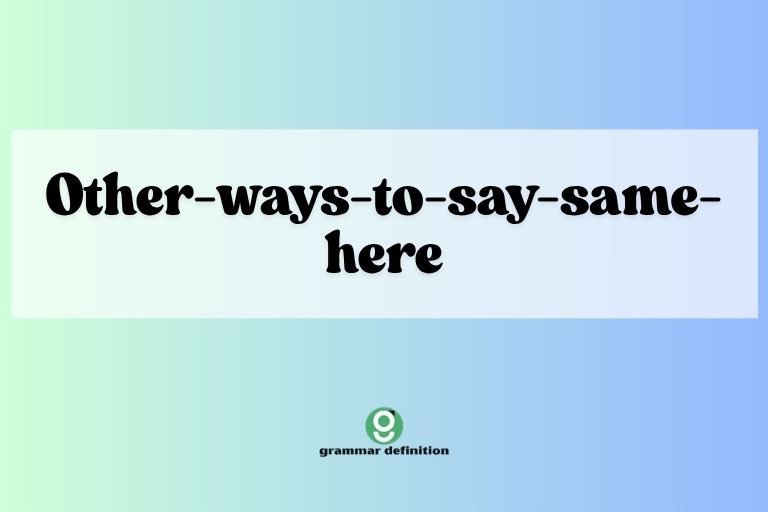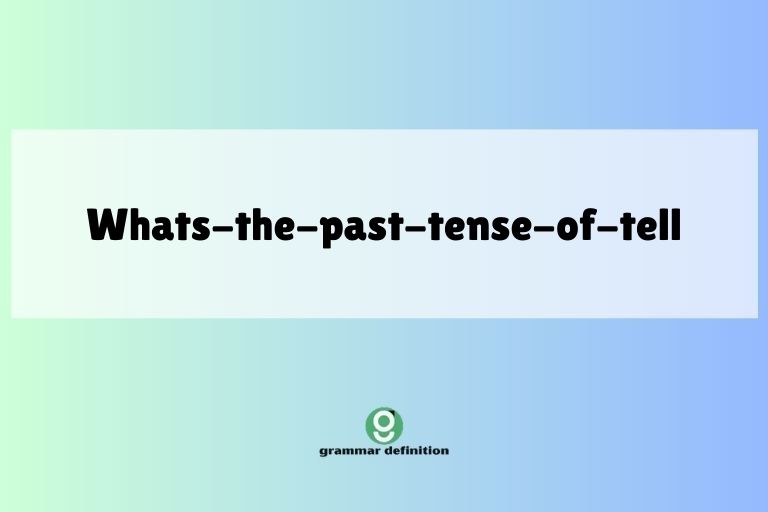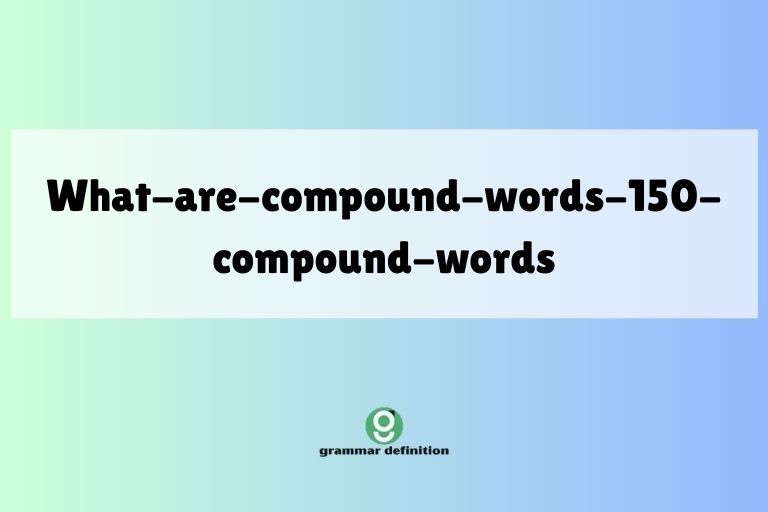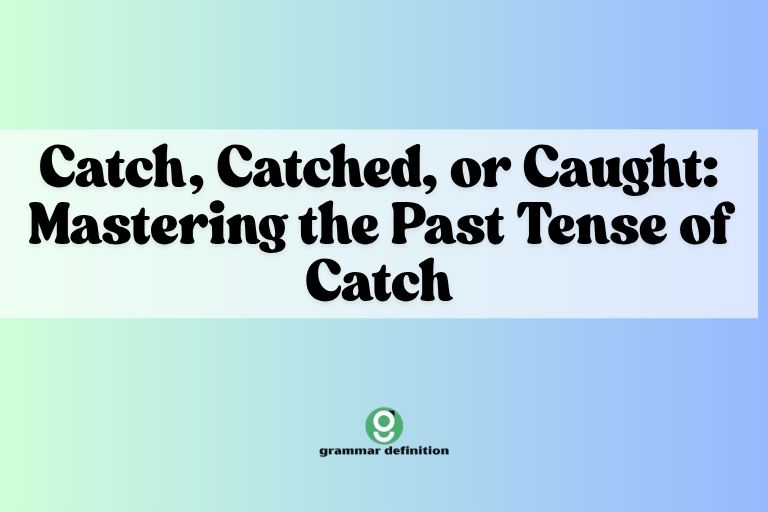Moral vs. Morale: Understanding the Difference in Usage
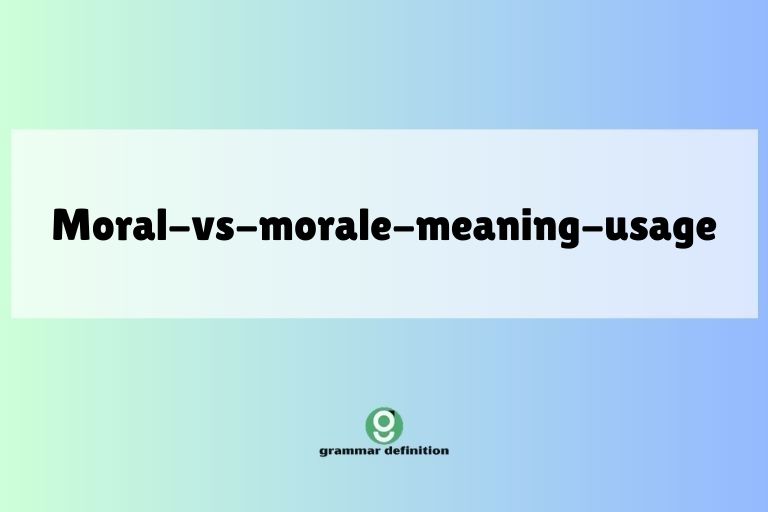
Distinguishing between “moral” and “morale” is crucial for clear and effective communication in English. These words, though similar in spelling and pronunciation, possess entirely different meanings and are used in distinct contexts.
Confusing them can lead to misunderstandings and awkward phrasing. This article provides a comprehensive guide to understanding the nuances of “moral” and “morale,” exploring their definitions, structural differences, usage rules, and common pitfalls.
Whether you are an English language learner, a student, or simply someone looking to refine their writing skills, this guide will equip you with the knowledge to use these words correctly and confidently.
Table of Contents
- Definitions of Moral and Morale
- Structural Breakdown
- Types of Moral
- Examples of Moral and Morale in Sentences
- Usage Rules
- Common Mistakes
- Practice Exercises
- Advanced Topics
- Frequently Asked Questions
- Conclusion
Definitions of Moral and Morale
It’s essential to start with clear definitions to understand the difference between “moral” and “morale.” These words have distinct meanings and grammatical functions.
Moral
Moral can function as both an adjective and a noun. As an adjective, it relates to principles of right and wrong behavior. It describes something that is considered good, ethical, or virtuous. As a noun, it refers to a lesson or principle learned from a story, experience, or situation.
- Adjective: Concerned with the principles of right and wrong behavior and the goodness or badness of human character.
- Noun: A lesson, especially one concerning what is right or prudent, that can be derived from a story, a piece of information, or an experience.
Morale
Morale is a noun that refers to the mental and emotional condition (specifically of enthusiasm, confidence, or loyalty) of an individual or group with regard to the function or tasks at hand. It describes the overall spirit and confidence of a person or team.
- Noun: The confidence, enthusiasm, and discipline of a person or group at a particular time.
Structural Breakdown
Understanding the structural differences between “moral” and “morale” can further clarify their distinct roles in sentences. “Moral” can modify nouns or stand alone as a noun, while “morale” typically functions as the subject or object of a verb.
Moral: Adjective
When used as an adjective, “moral” typically precedes the noun it modifies. It describes the quality of that noun in terms of right and wrong.
Examples:
- moral obligation
- moral compass
- moral dilemma
Moral: Noun
As a noun, “moral” often appears as the subject or object of a sentence, representing the lesson or principle being discussed.
Examples:
- The moral of the story is…
- He learned a valuable moral from the experience.
Morale: Noun
“Morale” is exclusively a noun. It is commonly used with verbs that describe its state (e.g., “is,” “was,” “remains”) or actions that affect it (e.g., “boost,” “improve,” “damage”).
Examples:
- Team morale is high.
- The news boosted morale.
- Low morale affected productivity.
Types of Moral
When considering “moral” as an adjective, we can distinguish different types based on the specific context or area of application. These categories help to illustrate the breadth of situations in which moral considerations arise.
Personal Morals
These are the individual principles that guide a person’s behavior. They are often based on upbringing, personal beliefs, and values.
Examples: Honesty, integrity, compassion.
Social Morals
These are the norms and values that a society deems acceptable or desirable. They often relate to issues of fairness, justice, and respect for others.
Examples: Respecting the law, treating others equally, contributing to the community.
Professional Morals
These are the ethical standards that govern behavior within a particular profession. They often involve duties to clients, colleagues, and the public.
Examples: Confidentiality in medicine, objectivity in journalism, integrity in finance.
Religious Morals
These are moral principles derived from religious teachings or beliefs. They often involve duties to God or a higher power, as well as specific rules of conduct.
Examples: Following the Ten Commandments, practicing charity, adhering to dietary laws.
Examples of Moral and Morale in Sentences
The best way to master the use of “moral” and “morale” is to see them in context. The tables below provide numerous examples of each word used correctly in sentences.
Examples of “Moral” as an Adjective
The following table contains examples of “moral” used as an adjective, describing different aspects of behavior, decisions, and principles.
| Sentence | Explanation |
|---|---|
| He faced a difficult moral dilemma. | “Moral” describes the nature of the dilemma, indicating it involves ethical considerations. |
| She had a strong moral compass. | “Moral” describes the compass, indicating it guides her decisions based on ethical principles. |
| It is our moral duty to help those in need. | “Moral” describes the duty, highlighting its ethical imperative. |
| The company has a moral obligation to its employees. | “Moral” describes the obligation, emphasizing its ethical responsibility. |
| He made a moral decision to resign. | “Moral” describes the decision, indicating it was based on ethical considerations. |
| She is a woman of high moral character. | “Moral” describes her character, highlighting her ethical integrity. |
| The book explores various moral issues. | “Moral” describes the issues, indicating they relate to right and wrong. |
| He questioned the moral implications of the policy. | “Moral” describes the implications, highlighting their ethical consequences. |
| They debated the moral justification for the war. | “Moral” describes the justification, questioning its ethical validity. |
| She gave him moral support during the crisis. | “Moral” describes the support, indicating it was based on ethical principles and encouragement. |
| The judge delivered a strong moral condemnation of the crime. | “Moral” describes the condemnation, emphasizing its ethical disapproval. |
| The film raises important moral questions. | “Moral” describes the questions, indicating they pertain to ethical dilemmas. |
| He is a moral leader who inspires others. | “Moral” describes the leader, highlighting their ethical integrity and influence. |
| The play explores the moral complexities of love and betrayal. | “Moral” describes the complexities, emphasizing their ethical dimensions. |
| She adheres to a strict moral code. | “Moral” describes the code, highlighting its ethical principles. |
| The community has a strong sense of moral values. | “Moral” describes the values, emphasizing their ethical importance. |
| He is known for his moral courage. | “Moral” describes his courage, highlighting his willingness to stand up for what is right. |
| The organization promotes moral education. | “Moral” describes the education, emphasizing its focus on ethical principles. |
| She made a moral commitment to help the poor. | “Moral” describes the commitment, highlighting its ethical dedication. |
| The politician promised to uphold moral standards. | “Moral” describes the standards, emphasizing their ethical importance. |
| The scientist faced moral concerns about his research. | “Moral” describes the concerns, highlighting their ethical implications. |
| The activist fought for moral justice. | “Moral” describes the justice, emphasizing its ethical foundation. |
| The artist explored moral themes in her work. | “Moral” describes the themes, indicating they relate to ethical issues. |
| He has a strong moral objection to the death penalty. | “Moral” describes the objection, highlighting its ethical basis. |
| The doctor has a moral responsibility to protect patient confidentiality. | “Moral” describes the responsibility, emphasizing its ethical duty. |
| The lawyer presented a moral argument in defense of his client. | “Moral” describes the argument, highlighting its ethical foundation. |
| The teacher instilled moral principles in her students. | “Moral” describes the principles, emphasizing their ethical importance. |
| The company has a moral imperative to reduce its carbon footprint. | “Moral” describes the imperative, highlighting its ethical obligation. |
Examples of “Moral” as a Noun
The following table contains examples of “moral” used as a noun, referring to the lesson or principle derived from a story, event, or experience.
| Sentence | Explanation |
|---|---|
| The moral of the story is to be kind to others. | “Moral” refers to the lesson learned from the story. |
| He learned a valuable moral from his mistakes. | “Moral” refers to the lesson he gained from his errors. |
| What is the moral of this fable? | “Moral” asks about the underlying lesson or principle. |
| The moral of the play was clear: don’t be greedy. | “Moral” refers to the central message of the play. |
| She extracted a moral from the difficult situation. | “Moral” refers to the lesson she learned from the challenge. |
| The speaker emphasized the moral of his speech. | “Moral” refers to the key takeaway or principle he wanted to convey. |
| There’s a moral to every story, if you look closely. | “Moral” refers to the underlying lesson or principle. |
| The moral of the experiment was unexpected. | “Moral” refers to the lesson learned from the scientific study. |
| The preacher delivered a sermon focusing on the moral of the Bible passage. | “Moral” refers to the ethical teaching derived from the scripture. |
| The moral of the anecdote was lost on the audience. | “Moral” refers to the intended lesson, which was not understood. |
| He tried to find a moral in the tragic events. | “Moral” refers to a meaningful lesson that could be learned from the sadness. |
| The moral of the Aesop’s fable is “slow and steady wins the race.” | “Moral” refers to the teaching from the well-known fable. |
| The moral of this cautionary tale is to always be prepared. | “Moral” refers to the warning or lesson the tale conveys. |
| The moral of the historical event is often debated. | “Moral” refers to the lessons that historians draw from the past. |
| The moral of the children’s book is to share your toys. | “Moral” refers to the simple lesson taught to young readers. |
| The moral of the business case study was to innovate or die. | “Moral” refers to the business lesson to continuously improve. |
| The moral of the urban legend is to be wary of strangers. | “Moral” refers to the warning or lesson the legend conveys. |
| The moral of the personal finance story was to save early and often. | “Moral” refers to the financial lesson. |
| The moral of the parable was to forgive others. | “Moral” refers to the teaching from the religious story. |
| The moral of the scientific study was to question assumptions. | “Moral” refers to the lesson learned from the study. |
| The moral of the political scandal was that no one is above the law. | “Moral” refers to the lesson learned from the event. |
| The moral of the environmental disaster was to protect the planet. | “Moral” refers to the lesson learned from the event. |
| The moral of the personal success story was to never give up. | “Moral” refers to the lesson learned from the event. |
| The moral of the team’s defeat was to learn from their mistakes. | “Moral” refers to the lesson learned from the event. |
| The moral of the technological innovation was to embrace change. | “Moral” refers to the lesson learned from the event. |
| The moral of the artistic masterpiece was to express yourself freely. | “Moral” refers to the message conveyed by the artwork. |
| The moral of the historical treaty was to pursue diplomacy over conflict. | “Moral” refers to the lesson learned from the event. |
| The moral of the scientific breakthrough was to challenge established theories. | “Moral” refers to the lesson learned from the event. |
Examples of “Morale” as a Noun
The following table contains examples of “morale” used as a noun, describing the state of mind and spirit of individuals or groups.
| Sentence | Explanation |
|---|---|
| The team’s morale is high after the victory. | “Morale” refers to the positive spirit and confidence of the team. |
| Low morale is affecting productivity. | “Morale” refers to the negative spirit and lack of motivation. |
| The manager tried to boost employee morale. | “Morale” refers to the spirit and enthusiasm of the employees. |
| The troops’ morale was boosted by the general’s speech. | “Morale” refers to the confidence and spirit of the soldiers. |
| The company’s morale suffered after the layoffs. | “Morale” refers to the negative impact on employee spirit due to job losses. |
| Good leadership can improve team morale significantly. | “Morale” refers to the positive impact on the team’s spirit through effective leadership. |
| Open communication helped maintain high morale during the project. | “Morale” refers to the positive spirit sustained through effective communication. |
| The constant criticism eroded the team’s morale. | “Morale” refers to the negative impact on the team’s spirit through criticism. |
| The new benefits package increased employee morale. | “Morale” refers to the positive spirit resulting from the improved benefits. |
| The challenging work environment lowered morale among the staff. | “Morale” refers to the negative impact on the staff’s spirit due to the difficult conditions. |
| The coach focused on building morale before the big game. | “Morale” refers to the positive spirit and confidence the coach wanted to instill. |
| The company organized a team-building event to improve morale. | “Morale” refers to the positive spirit that the event was intended to create. |
| The soldiers’ morale wavered during the long march. | “Morale” refers to the spirit or courage of the soldiers. |
| The economic downturn significantly impacted public morale. | “Morale” refers to the overall spirit and optimism of the public. |
| The leader’s optimistic speech did much to lift the people’s morale. | “Morale” refers to the overall spirit and optimism of the people. |
| The constant rain and lack of supplies began to affect the hikers’ morale. | “Morale” refers to the spirit and determination of the hikers. |
| The CEO’s visit to the factory floor greatly boosted worker morale. | “Morale” refers to the spirit and motivation of the workers. |
| The success of the project was greatly attributed to the high team morale. | “Morale” refers to the overall spirit and motivation of the team. |
| Despite the setbacks, the team managed to maintain a good level of morale. | “Morale” refers to the spirit or courage of the team. |
| The announcement of the company’s record profits significantly improved investor morale. | “Morale” refers to the confidence and optimism of the investors. |
| The teacher’s encouragement had a positive effect on student morale. | “Morale” refers to the spirit and motivation of the students. |
| The volunteer’s hard work helped to improve the morale of the community. | “Morale” refers to the spirit and optimism of the community. |
| The fans’ enthusiastic support lifted the team’s morale during the game. | “Morale” refers to the spirit and confidence of the team. |
| The challenging conditions tested the explorers’ morale. | “Morale” refers to the spirit and determination of the explorers. |
| The difficult project required the team to maintain a high level of morale. | “Morale” refers to the spirit and motivation of the team. |
| The new policy aimed to improve morale in the workplace. | “Morale” refers to the spirit and motivation of the employees. |
| The positive feedback from customers boosted the sales team’s morale. | “Morale” refers to the spirit and motivation of the sales team. |
| The charity event helped to raise morale within the organization. | “Morale” refers to the spirit and motivation of the organization. |
Usage Rules
To ensure correct usage of “moral” and “morale,” it’s important to adhere to specific rules and understand their grammatical functions.
Moral as an Adjective
- Use “moral” to describe something related to principles of right and wrong.
- Place “moral” before the noun it modifies.
- Ensure the context involves ethical considerations or principles.
Moral as a Noun
- Use “moral” to refer to the lesson or principle derived from a story, event, or experience.
- Ensure the sentence conveys the idea of a lesson or teaching.
Morale as a Noun
- Use “morale” to refer to the mental and emotional condition of an individual or group.
- Ensure the context involves spirit, confidence, or enthusiasm.
- “Morale” is always a noun and cannot be used as an adjective.
Key takeaway: Remember that “moral” relates to ethics and principles, while “morale” relates to spirit and confidence.
Common Mistakes
Confusing “moral” and “morale” is a common error. Understanding these frequent mistakes can help you avoid them.
| Incorrect | Correct | Explanation |
|---|---|---|
| The team’s moral was high. | The team’s morale was high. | “Morale” refers to the team’s spirit, not their ethical principles. |
| He had a strong morale compass. | He had a strong moral compass. | “Moral” describes the ethical guidance he followed. |
| What is the morale of the story? | What is the moral of the story? | “Moral” refers to the lesson learned from the story. |
| The company’s moral suffered after the layoffs. | The company’s morale suffered after the layoffs. | “Morale” refers to the negative impact on employee spirit. |
| It is our morale duty to help those in need. | It is our moral duty to help those in need. | “Moral” describes the ethical obligation. |
Test your understanding of “moral” and “morale” with the following exercises. Choose the correct word to complete each sentence. Choose the correct word (moral or morale) to fill in the blanks in the following sentences. Identify whether the use of “moral” or “morale” is correct or incorrect in the following sentences. If incorrect, correct the sentence.Practice Exercises
Exercise 1
Question
Answer
1. The ________ of the story is to never give up.
moral
2. The team’s ________ improved after the new coach arrived.
morale
3. He faced a difficult ________ dilemma.
moral
4. Low ________ can affect productivity in the workplace.
morale
5. She has a strong ________ compass that guides her decisions.
moral
6. The company worked to boost employee ________.
morale
7. What is the ________ of this fable?
moral
8. The soldiers’ ________ was high before the battle.
morale
9. It is our ________ obligation to help those less fortunate.
moral
10. The economic downturn lowered public ________.
morale
Exercise 2
Question
Answer
1. Despite the challenges, the team maintained high ________.
morale
2. The ________ of the play was about the dangers of greed.
moral
3. The manager addressed the team to improve their ________.
morale
4. He made a ________ decision based on his principles.
moral
5. The troops’ ________ was boosted by the victory.
morale
6. The film explores complex ________ issues.
moral
7. Good communication can improve team ________.
morale
8. She questioned the ________ implications of the policy.
moral
9. The company’s ________ suffered after the budget cuts.
morale
10. There is a ________ to every story, if you look closely.
moral
Exercise 3
Question
Answer
1. The team’s moral was low after the defeat.
Incorrect. The team’s morale was low after the defeat.
2. He had a strong moral compass.
Correct.
3. What is the morale of the story?
Incorrect. What is the moral of the story?
4. The company’s moral suffered after the layoffs.
Incorrect. The company’s morale suffered after the layoffs.
5. It is our moral duty to help those in need.
Correct.
6. The team’s morale code was strong.
Incorrect. The team’s moral code was strong.
7. The general boosted the troops’ moral.
Incorrect. The general boosted the troops’ morale.
8. The moral of the employees was high.
Incorrect. The morale of the employees was high.
9. The story had a deep morale lesson.
Incorrect. The story had a deep moral lesson.
10. She showed great morale courage.
Incorrect. She showed great moral courage.
Advanced Topics
For advanced learners, exploring the nuances and complexities of “moral” and “morale” can further refine their understanding and usage.
The Philosophy of Morality
Explore the philosophical underpinnings of morality, including different ethical theories such as utilitarianism, deontology, and virtue ethics. Understanding these concepts can provide a deeper appreciation for the complexities of moral decision-making.
The Psychology of Morale
Delve into the psychological factors that influence morale, such as motivation, job satisfaction, and team dynamics. Understanding these factors can help leaders and managers create environments that foster high morale.
Moral Relativism vs. Moral Absolutism
Examine the debate between moral relativism (the belief that moral principles are relative to culture or individual) and moral absolutism (the belief that there are universal moral principles that apply to all people at all times). This debate raises important questions about the nature of morality and its application in different contexts.
The Impact of Culture on Morale
Consider how cultural differences can affect morale in the workplace and other settings. Understanding these differences can help to promote cross-cultural understanding and improve team cohesion.
Frequently Asked Questions
Here are some frequently asked questions about the usage of “moral” and “morale.”
-
Q: How can I easily remember the difference between “moral” and “morale”?
A: Think of “moral” as relating to what is right or wrong (ethics), and “morale” as relating to spirit or confidence. A helpful mnemonic is: Moral is about ethics, and morale is about spirit.
-
Q: Can “morale” be used as an adjective?
A: No, “morale” is exclusively a noun. It cannot be used to describe something.
-
Q: Is it ever correct to use “moral” in a context related to team spirit?
A: No, unless you are referring to the ethical standards or principles that guide the team’s behavior. In most cases, “morale” is the correct word to use when discussing team spirit or confidence.
-
Q: What are some synonyms for “morale”?
A: Some synonyms for “morale” include spirit, confidence, enthusiasm, esprit de corps, and mental attitude.
-
Q: What are some related terms to “moral”?
A: Some related terms to “moral” include ethical, virtuous, righteous, principled, and honorable.
-
Q: Can you provide a sentence where both “moral” and “morale” are used correctly?
A: While rare, it is possible: “Maintaining high morale requires a strong moral compass, ensuring ethical decisions that boost team spirit.”
-
Q: How does context affect the interpretation of “moral”?
A: Context is crucial. “Moral” can refer to personal beliefs, societal norms, or the lesson of a story. Understanding the surrounding information is key to grasping its intended meaning.
-
Q: What is the etymology of “moral” and “morale”?
A: “Moral” comes from the Latin word “moralis,” meaning “relating to character or proper behavior.” “Morale” comes from the French word “moral,” meaning “spirit” or “temper,” which itself is derived from the same Latin root as “moral.”
Conclusion
Understanding the distinction between “moral” and “morale” is essential for precise and effective communication. “Moral” pertains to principles of right and wrong, ethics, and lessons learned, while “morale” refers to the spirit, confidence, and enthusiasm of individuals or groups.
By mastering their definitions, structural differences, and usage rules, you can avoid common mistakes and enhance the clarity of your writing and speech.
Remember to consider the context carefully when choosing between these words. Practice using them in various sentences and situations to solidify your understanding.
With continued effort, you can confidently and accurately use “moral” and “morale” in your everyday communication.



